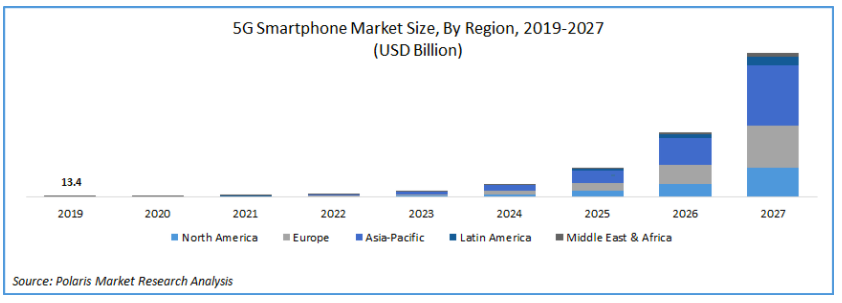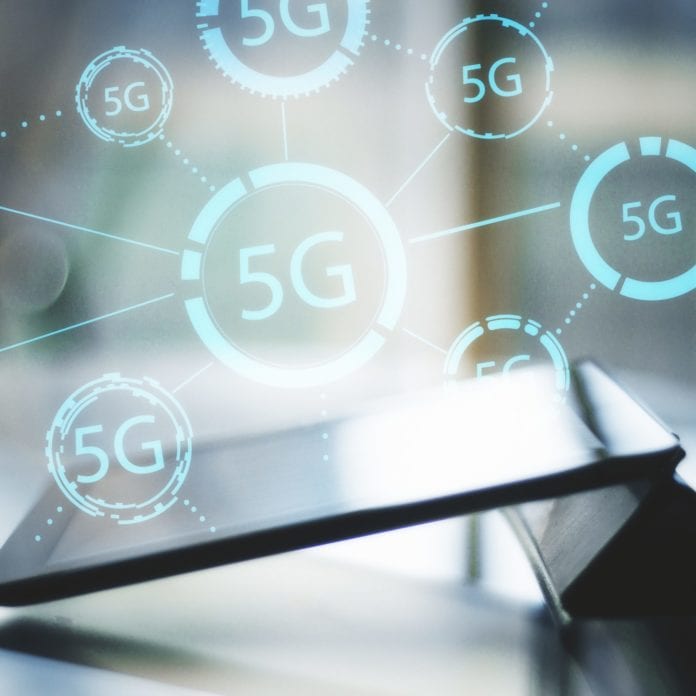The global 5G smartphone market saw a ‘steep reduction’ in demand during the first two quarters of 2020
A new study concludes that the global 5G smartphone market size is expected to grow at a compound annual growth rate of 122.7% from 2020 to 2027. While the market of next-gen smartphones reached 12.42 million units in 2019, the first two quarters of 2020 saw a “steep reduction” in demand, according to the study from Polaris Market Research.
However, the global 5G smartphone market is expected to rebound starting in the Q3 and Q4 of 2020 and should maintain its momentum during the forecast period. This return to growth is considered to be the result of the market’s increasing ability to provide high-speed internet connectivity and coverage as well as the ability of 5G phones to provide improved reliability in comparison to 4G-based smartphones.

Further, new 5G product launches, particularly in China and India, are also contributing significantly to the predicted growth. These two countries helped place the Asia Pacific region as the largest revenue contributor in the group, followed by Europe. In addition, users in China and India are particularly active in phone applications, which furthers boosts smartphone penetration in these markets.
When it comes to the highest expected growth through 2027, however, Europe takes the cake, owing to the region’s tech-savvy consumers who generally favor premium devices and handsets.
As a result of the COVID-19 pandemic, there was a “precipitous decline” in the average selling price of 5G smartphones during Q1 of 2020. However, the report also indicated that another major reason behind the decline in prices was the introduction of low-priced Chinese 5G devices.
As the demand for high speed internet continues to accelerate, both in business and home settings, driven largely by streaming services, so too will the demand for devices that can handle the task.
“On-demand content is being increasingly preferred by the younger generation, and the advent of 5G Smartphone will provide them with a tool for viewing high quality content on the go,” stated the authors of the study. “High=speed internet is required for providing a hassle-free streaming experience. Furthermore, with the growth of both residential and industrial IoT, smartphones will play the role of a personalized authentication device for enhanced security purposes.”

